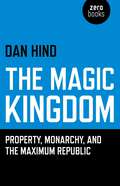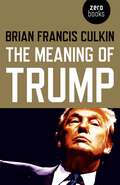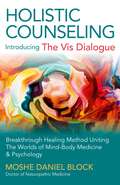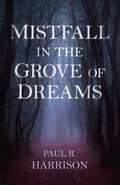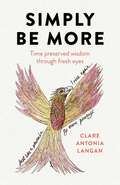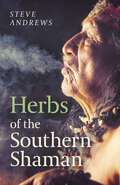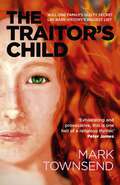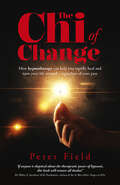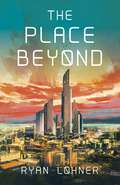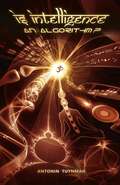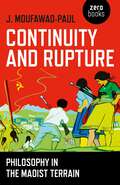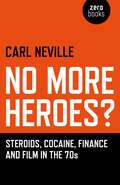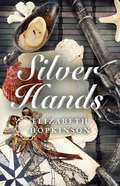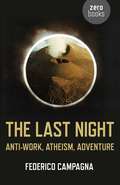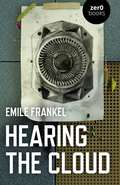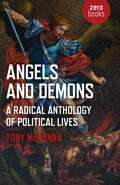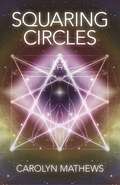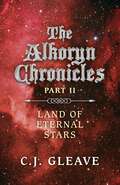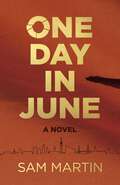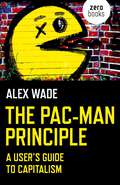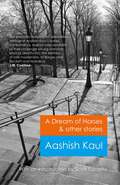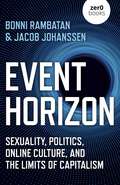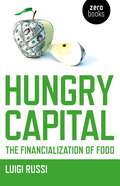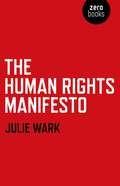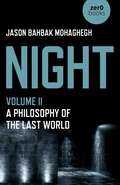- Table View
- List View
The Magic Kingdom: Property, Monarchy, and the Maximum Republic
by Dan HindAnyone who knows anything about Britain knows that it is a democracy and a constitutional monarchy. The trouble is, it is neither. The United Kingdom of Great Britain and Northern Ireland is one of the most exotic nations on earth. In the republican form of government a defined public exercise sovereign power. Most modern states describe themselves as democratic republics. The United Kingdom of Great Britain and Northern Ireland is an anomaly, in that formal sovereignty is still denied to its people. In The Magic Kingdom Dan Hind explores what the republican tradition has to offer the British at a time of deep political, social and economic dislocation. He considers what innovations are necessary if liberty is to be secured in current conditions. His argument will surprise many who consider themselves republicans. It will upset those who benefit from the current arrangements. It offers a way forward for those who can no longer tolerate steepening inequality and its associated ills. Existing republican institutions have not been able to deliver public control of the state. If substantive democracy is to be possible in large and complex societies, the systems of communication, subsidy and credit must be made subject to popular oversight and control. In a disarmingly calm manner, Hind shows how this can be done, by minor adjustments to the existing institutions. Perhaps, unlikely as it sounds, Britain will provide the venue for the world's first truly republican society.
The Meaning of Trump
by Brian Francis CulkinThe election of Donald Trump was a shattering moment to the political sensibilities of America; immediately sending the country into a frenzy of commentary, critique, and a never-ending media coverage that has bordered on the absurd. But the question still remains: what does it all mean? The Meaning of Trump is an ideological critique that sees the election of Donald Trump as a completely natural progression to the general trajectory of digitized technologies, neoliberalism, and a new breed of financialized capitalism; destructive global forces that know no party affiliation or national boundary. Although Donald Trump is undoubtedly the symptom that has exploded to the surface after nearly four decades of failed policies and broken promises by both Republicans and Democrats alike, his election can also be seen as an existential fork in the road for both the United States and even humanity itself.What path is taken still remains to be seen.
Holistic Counseling - Introducing "The Vis Dialogue": Breakthrough Healing Method Uniting The Worlds Of Mind-Body Medicine & Psychology
by Moshe Daniel BlockHolistic Counseling - Introducing "The Vis Dialogue" is about a cutting-edge, revolutionary new process of counseling that helps the practitioner connect the patient&’s mind with their body to establish the real root cause of illness and disease. This technique helps to empower the patient to understand how their body is a reflection of their mind and how their illness also reflects that. This counseling technique alone has often been enough to heal incurable and protracted physical diseases without drugs, supplements, or any other form of remedy.
Mistfall in the Grove of Dreams
by Paul R. HarrisonEleventh century England; life is hard. A young boy is identified as a 'wyrd one' and is sent into the forest to know the ways of the Mist. Learning that life does not work the way he had believed, he takes his first steps on a journey into understanding the purpose of his own life and the dangers inherent in a life lived without spirit. Part adventure, part fable, Mistfall in the Grove of Dreams is a story of the great Mysteries which have been taught all over the world for thousands of years, retold for our times.
Simply Be More: Time Preserved Wisdom through Fresh Eyes
by Clare Antonia LanganSimply Be More is a collection of beautiful, inspiring and soothing sketches using animals and nature to illustrate time-preserved wisdom. Life isn't determined by where we have come from; it is where we are going that is important. Clare Langan has lived it - and rather than talked about it, has written it and now drawn it, too.
Herbs of the Southern Shaman: Companion To Herbs Of The Northern Shaman
by Steve AndrewsFollowing on from the popular Herbs of the Northern Shaman, this latest collection, Herbs of the Southern Shaman, describes psychoactive herbs that grow in the southern hemisphere. Written primarily for herbalists, witches and pagans, occultists, healers, therapists, botanists and gardeners and featuring a bibliography and glossary, it serves as a reference book for anyone interested in shamanism and herbs. 'Concise, knowledgeable, clearly and distinctly written...can be enjoyed on many levels: as a reference book, a spiritual guide, a horticultural manual, or simply for entertainment.' C.J. Stone, author and journalist
The Traitor's Child: Will One Family's Guilty Secret Lay Bare History'S Biggest Lie?
by Mark TownsendAfter a fateful confrontation with the brother he once betrayed, Eric van Kroot finds himself roaming Amsterdam's seediest streets in a desperate search for the child he never knew he had. His quest uncovers far more than he'd bargained for, however, as he stumbles across the biggest cover up in history. But there are those who will do anything to stop him, for, while many have much to gain, others have everything to lose...
Chi of Change: How Hypnotherapy Can Help You Heal and Turn your Life Around - Regardless of your Past
by Peter FieldIs there a way out of anxiety, depression, overeating, fear, phobias, addiction, insomnia, trauma, and low self-esteem - without taking pills? Is there really an alternative to Prozac and anti-depressants? Can you really recapture the simple joy of living? The answer to all theses questions is Yes! This book will show you: How your subconscious mind has been programmed to make you feel the way you feel. How these programs can be rapidly changed through the right kind of hypnotherapy. How even your most difficult feelings and emotions can help you change your life for the better. How you can live a balanced, meaningful life and move forward in confidence and harmony with yourself and your world
The Place Beyond
by Ryan LohnerA futuristic parallel universe filled with unimaginable technology. Rebels fighting against its tyrannical government who&’ll do anything to crush the rebellion. Three friends trapped searching for a missing classmate have only a week to find him and escape before being in the new world kills them. Outnumbered and alone, they need to discover who they can trust and what friendship and love really mean, fast. And one final question to answer…Are you sure you're in the right universe? An absorbing debut novel from an exciting new voice in YA fiction, for fans of classic science fiction adventure, coming of age romance and strong female characters.
Is Intelligence an Algorithm?
by Antonin TuynmanHow do we understand the world around us? How do we solve problems? Often the answer to these questions follows a certain pattern, an algorithm if you wish. This is the case when our analytical left-brain side is at work. However, there are also elements in our behaviour where intelligence appears to follow a more elusive path, which cannot easily be characterised as a specific sequence of steps. Is Intelligence an Algorithm? offers an insight into intelligence as it functions in nature, like human or animal intelligence, but also sheds light on modern developments in the field of artificial intelligence, proposing further architectural solutions for the creation of a so-called global Webmind.
Continuity and Rupture: Philosophy in the Maoist Terrain
by J. Moufawad-PaulA philosophical examination of the theoretical terrain of contemporary Maoism premised on the counter-intuitive assumption that Maoism did not emerge as a coherent theory until the end of the 1980s.
No More Heroes?: Steroids, Cocaine, Finance and Film in the 70s
by Carl NevilleThe interface between neoliberalism, steroids, cocaine, finance and American mythology as reflected in the films of the 70s and 80s.
Silver Hands
by Elizabeth HopkinsonA mysterious pendant. A sinister suitor. And an epic chase to the Edge of the Map... 1706. The rival Dutch and English East India Companies sail the world s oceans, bringing back exotic treasures and tales of fantastical lands. In coastal Hollyport, Margaret faces a terrible choice: to abandon herself to a marriage that could erase her very soul, or to risk all aboard a ship bound for dangerous waters. With her betrothed husband, the sinister Mr Van Guelder in pursuit, Margaret embarks on a journey like no other: where pirates, flying islands and secret empires await; along with unexpected friendship from troubled young nobleman Taro, whose estate holds surprises and sorrows of its own. But Van Guelder is never far behind, nor is the power of the mysterious lodestone round his neck, and Margaret will have to learn the true nature of suffering before she can ever be free.
Last Night: Anti-Work, Atheism, Adventure
by Federico CampagnaOur secular society seems to have finally found its new God: Work. As technological progress makes human labor superfluous, and over-production destroys both the economy and the planet, Work remains stronger than ever as a mantra of universal submission. This book develops a fully-fledged theory of radical atheism, advocating a disrespectful, opportunist squandering of obedience. By replacing hope and faith with adventure, The Last Night of our lives might finally become the first morning of an autonomous future.
Hearing the Cloud: Can Music Help Reimagine The Future?
by Emile FrankelCan music be a curse? Here is an alternate history of online politics and new technology from the perspective of listening, typing, composing, and shared hearing. Emile Frankel presents a rigorous account of a world felt to be in crisis. The aesthetic and tonal ramifications for such feelings are twisted within the oppressive online structures mediating new music. The legacies of Silicon Valley digitalism, 4chan, Less Wrong, and Chaos Magic are compared to the magical thinking which underlies stochastic composition, and the aesthetics of deconstructed club music. Despite a pessimistic account of Accelerationism and reactionary philosophy, Frankel's spirited writing is full of hope. Hearing the Cloud considers the communal online conversations we engage in daily as profound acts of defiance. Sweet, lithe, oily, and honest music is shown to be an important source of togetherness.
Angels and Demons: A Marxist Analysis of Key Political and Historical Figures
by Tony McKennaA Marxist analysis of key political and historical figures including Hugo Chavez and Jeremy Corbyn, Hillary Clinton and Donald Trump. Angels and Demons offers a series of profiles of historical figures both old and new. Using a Marxist analysis, the author adduces the particularities of each individual personality from the crest of living history which brings it to the fore, showing with each of the figures examined how the art, politics and creativity of their lives is infused by the rhythm and contradictions of the broader historical backdrop. The angels in the collection are Hugo Chavez, Andrea Dworkin, Rembrandt, Victor Hugo, Jeremy Corbyn and William Blake. The demons are Donald Trump, Christopher Hitchens, Arthur Schopenhauer and Hillary Clinton.
Squaring Circles
by Carolyn MathewsSquaring Circles is Book Two in the Pandora Series. The full series is: Transforming Pandora - Pandora Series - Book One - pISBN 9781780997452 - Roundfire - 2013; Squaring Circles - Pandora Series - Book Two -pISBN 9781782797050 - Roundfire - 2014; Pandora's Gift - Pandora Series - Book Three - pISBN 9781785351754 - Roundfire - 2015.
The Alkoryn Chronicles: Part II Land Of Eternal Stars
by C. J. GleaveAfter his village is decimated and his tribe enslaved by the dictatorial Zygeth, Ugoki, of the Rhajok&’dons is left to find his own way in the desolate realm of Stygia, where the sun never rises. Traveling west, he joins the resistance group. There he meets a young boy, Xanoth, with whom he develops an unbreakable bond. They vow to put an end to the oppression of Kraag&’Blitz, forever, in this compelling second instalment of The Alkoryn Chronicles.
One Day In June
by Sam MartinAll his adult life Adrian Kramer had carried around with him a secret. But was it as big a secret, or one as explosive or life-threatening as the secret he stumbled into? Based on a true story and series of historical events, One Day In June is one man&’s journey of self discovery into the dark and bleeding heart of Europe.
The Pac-Man Principle: A User's Guide To Capitalism
by Alex WadeIn spite of being well into middle-age, Pac-Man's popularity shows no sign of decline and the character has appeared in over sixty games on virtually every games platform ever released. According to the David Brown celebrity index, in 2008, nearly three decades after initial release, 94% of Americans were able to recognise Pac-Man, which gave the character greater brand awareness than Super Mario. Pac-Man, with its avowed commitment to non-violence was a videogame of many firsts, including being designed to appeal to children and females and providing the first narrative interlude in a videogame. Although iconic, Pac-Man has not been subject to sustained critical analysis. This book helps to fill that gap, providing an extensive, sophisticated, but accessible analysis of the influence of Pac-Man on the way that we live in contemporary western societies.
Dream of Horses & Other Stories
by Aashish KaulThe stories in this collection draw variously on the themes of love and loss, Taoist metaphors, socio-political concerns, and the writer's place and role in the world. Literary and complex yet accessible and fast-paced, each story differs widely in style, motivation, philosophy, and denouement from all the others. The collection encompasses topographies and places from China to France, and Ireland to India.
Event Horizon: Sexuality, Politics, Online Culture, and the Limits of Capitalism
by Bonni RambatanIn an age where Silicon Valley dictates what it means to innovate a painless future, knowledge and enjoyment are fertile breeding grounds of political contestation. But it&’s not exactly democracy. We are controlled through platforms that turn us into data for the profit of billionaires. Control has become so playful that we carry it in our pockets, as we continue to crave likes and followers. What is to be done? Should the Left continue to cling to the promise of a political Event, patiently waiting for a revolutionary rupture where new possibilities emerge? Is there a way to delineate its horizons amidst the chaos? Through a psychoanalytic interrogation of the intersections of online culture, sexuality, and politics, Bonni Rambatan and Jacob Johanssen explore such horizons at the limits of capitalism. Event Horizon examines how capitalist ideology functions in our current moment, and, more importantly, how it breaks down. With the increasing urgency of formulating a proper Leftist response to the rapidly growing violence that seriously threatens the lives of marginalised communities, this book could not be more timely.
Hungry Capital: The Financialization of Food
by Luigi RussiOver the past thirty years, the ability of global finance to affect aspects of everyday life has been increasing at an unprecedented rate. The world of food bears vivid testimony to this tendency, through the scars opened by the 2008 world food price crisis, the iron fist of retailing giants that occupy the supply chain and the unsustainable ecological footprint left behind by global production networks. Hungry Capital offers a rigorous analysis of the influence that financial imperatives exert on the food economy at different levels: from the direct use of edible commodities as an object of speculation to the complex food chains set up by manufacturers and supermarkets. It argues that the circular compulsion to build profits upon profits that global finance injects into the world of food restructures the basic nurturing relationship between man and nature into a streamlined process from which value has to be mined. The end result is a monstrous Leviathan that holds together while -- at every step -- risks to crumble.
Human Rights Manifesto
by Julie WarkUniversal human rights are intrinsically radical in espousing liberty, equality and fraternity for every single person. We must claim them.
Night: A Philosophy of the Last World
by Jason Bahbak MohagheghThis book follows and expands on the boundaries of its precursor Night: A Philosophy of the After-Dark by presenting a series of new conceptual territories, figures, sources, images and imaginative possibilities. The central idea of Night is contemplated in its intricate relation to space, silence, cruelty and secrecy while also taking thought toward the futural limits of a vision of the last world.
